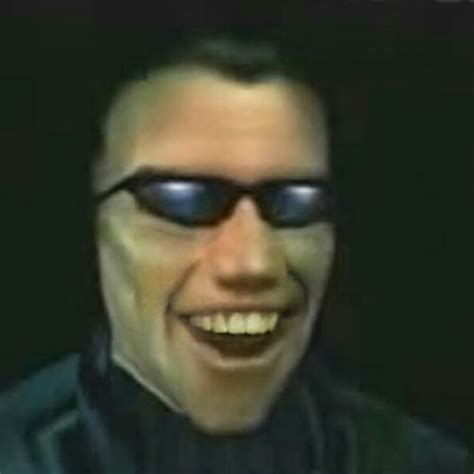The simulated universe theory implies that our universe, with all its galaxies, planets and life forms, is a meticulously programmed computer simulation. In this scenario, the physical laws governing our reality are simply algorithms. The experiences we have are generated by the computational processes of an immensely advanced system.
While inherently speculative, the simulated universe theory has gained attention from scientists and philosophers due to its intriguing implications. The idea has made its mark in popular culture, across movies, TV shows and books—including the 1999 film “The Matrix.”
The earliest records of the concept that reality is an illusion are from ancient Greece. There, the question “What is the nature of our reality?” posed by Plato (427 BC) and others, gave birth to idealism. Idealist ancient thinkers such as Plato considered mind and spirit as the abiding reality. Matter, they argued, was just a manifestation or illusion.
Fast forward to modern times, and idealism has morphed into a new philosophy. This is the idea that both the material world and consciousness are part of a simulated reality. This is simply a modern extension of idealism, driven by recent technological advancements in computing and digital technologies. In both cases, the true nature of reality transcends the physical.
Within the scientific community, the concept of a simulated universe has sparked both fascination and skepticism. Some scientists suggest that if our reality is a simulation, there may be glitches or patterns within the fabric of the universe that betray its simulated nature.
However, the search for such anomalies remains a challenge. Our understanding of the laws of physics is still evolving. Ultimately, we lack a definitive framework to distinguish between simulated and non-simulated reality.
If we are, we’re emergent behavior, not the topic of study.
Frankly, simulation theory feels a lot like other previous “humans are super special!” ontologies. We’re not, we’re just organic bags of complex chemical processes like every other lifeform on Earth, with all the cool potential and shitty vulnerabilities that such a thing entails. I’ve yet to see anything which truly sets us apart as a species beyond the need to ascribe a meaning to our mortality.
Also, phys.org is (yet again) trash and have just reposted this piece as “news” from a book advertisement by the author on theconversation.com but altered the title in a small but meaningful way that conceals the disclosure
Phys.org title:
Do we live in a computer simulation like in The Matrix? Proposed new law of physics backs up the idea
Original title:
Do we live in a computer simulation like in The Matrix? My proposed new law of physics backs up the idea
I got dubious as soon as the author talked about “my theory” and then there was the plug for his dumb book.
I haven’t looked at it in detail, but the Matrix comparison is likely just a relatable catch phrase to get the average Joe pick up the book.
Frankly, simulation theory feels a lot like other previous “humans are super special!” ontologies. We’re not, we’re just organic bags of complex chemical processes like every other lifeform on Earth
We are though. As far as we know, we’re the only advanced life forms in the known universe. We’ve scanned the sky for decades and haven’t found evidence of even a single culture, not within hundreds of millions of light years from us. That’s pretty special. Yes, other animals are likely sentient, but there are no other animals that can build computers, jet engines, and spacecraft. There are no other animals that even have a spoken language as far as we know.
Compared to a being that can build a universe? A spacecraft might as well be a bird’s nest. I’m inclined to agree with the guy that you’re replying to. If this universe is a simulation, I personally doubt that its creator is specifically aware of us as a species, let alone as individuals. The fact that life appears so rare in this universe only tells me that if the universe was designed, it wasn’t designed for us or entities like us.
Also are you sure about that last sentence? Surely none have language as sophisticated as we do, but don’t dolphins have a sort-of language? I genuinely don’t know
To us a being that can create a universe is a god, not just another creature.
I don’t follow your train of thought that the creator of a simulation wouldn’t know of the only advanced intelligence within their simulation. They would have specifically coded us, or at least the conditions that led to us. The vastness of the universe and the speed of light limitation is likely the invisible wall meant to keep us where we are.
Dolphins, birds, and some other species have rudimentary auditory communication, but it’s very limited as far as we know. They fall far short of a spoken language . They seem to communicate simple concepts such as “I am here. I want food. I want to fuck. You’re not welcome”, nothing that allows communication of abstract concepts required for an advanced intelligence to flourish.
To us a being that can create a universe is a god, not just another creature.
That’s my point - we’re just another creature. On a scale of bird to god, we might as well be a bird. It’s vain to assume that a universe-creator of all people would give a fuck about human achievements. Only other humans care.
I don’t follow your train of thought that the creator of a simulation wouldn’t know of the only advanced intelligence within their simulation.
I’m not saying that the creator couldn’t know, I’m saying they likely wouldn’t care. Of course I’m just guessing same as you, but life in general is probably just noise considering all that goes on in the universe without a trace of life as we define it. My bet is that we’re simply outside of the creator’s scope. She’s probably interested in other things like gravity and the ratio’s of elements as time progresses.
Also, you say that we’re the only advanced intelligence in the universe/simulation with way too much certainty. We’ve only been outside of our atmosphere for a little more than half a century, which is to say three things:
-
“advanced” is relative, if not subjective.
-
Give it time, we could find life in the next few millennia.
-
Even if we never find life, Occam’s razor. Is it wise to assume that the universe was created for homo-sapiens, when it’s possible that life is simply rare and we aren’t as advanced as we think we are?
The vastness of the universe and the speed of light limitation is likely the invisible wall meant to keep us where we are.
This sounds a lot like the flat-earth ice wall idea. Most thought on simulation philosophy posits that our fixed rate of causation is due to the limits of the media that the universe “runs” on, and we see parallels in our own “simulations”. So there’s no right or wrong here but again, Occam’s razor.
I believe that my first paragraph addresses your last, but I do want to take the anthropological angle. When we thought the earth was flat, many civilizations assumed that theirs was the center. When it became clear that the earth was a globe, we assumed that the sun, planets, and stars orbited the earth, and that the earth was the center of the universe. When we learned that actually the earth orbits the sun, we still thought that the sun was the center of the universe which was just the solar system + the stars before we realized that the sun is just one star, and the sun itself had an orbit in in the galaxy, which we again falsy assumed was the whole universe.
We tend to see ourselves as the center of the universe because that’s our perspective, it’s natural and intuitive. That assumption has been wrong every step of the way so far though. So what makes you so sure that this time is so different? What makes you so sure that homosapiens, the apes living on one rock on the edge of some random, average galaxy, who only just escaped their planet’s orbit just now on a cosmic scale, are the focal point of the entire theoretically observable universe, which they’ve only just scratched the surface of being able to observe? The fact that they have a few million year evolutionary head start on their chimpanzee cousins? Or a few more million on their dolphin cousins? Or a couple billion on their rock cousins?
That’s my point - we’re just another creature. On a scale of bird to god, we might as well be a bird.
A lot of the simulation theory proponents propose that we’re the creators of the simulation. That an advanced human society spins up simulations to test theories on whatever… evolution, progress, history, you name it. In that case we’re actually nothing. We’re lines of code. But we’re lines of code created by our future society. Or present society really, but that reality is outside our knowledge.
I just finished a sci-fi fiction series called The World Walker and it gets pretty deep into simulation theory. It was a very interesting and thought provoking read. You have to wade through 2 whole books before they get to that part though, so don’t expect to pick it up and jump right in. It’s definitely worth a read IMO though, if you’re interested.
Anyways, the point is that if we’re truly in a simulation, then we’re nothing. We don’t exist. You could propose that all consciousness is existence, AI or otherwise, but we don’t exist in the physical realm. If it is humanity, or some unknown culture that created the simulation is irrelevant as far as we’re concerned.
If we’re in a simulation then we’re meaningful to whoever is running it, assuming we’re being observed. I would assume all life is meaningful to them as well though. I guess it depends on their objectives. If we’re not in a simulation then we’re meaningful to ourselves, being the only advanced society we’re aware of. Either way, humanity means something, it’s just a shame that none of us can agree on what that is.
Edit: I just read a theory last week that our entire universe may exist inside of a black hole. If that’s true then we’ve indirectly observed multiple universes already. It makes me think of the closing scene to Men In Black where the aliens are playing marbles with our entire universe. That’s an interesting theory too.
We’re the creators? As in the human race? Okay, I actually think that I understand your point now. If we start with the assumption that the universe was run by beings like us, and they based it on their own universe, then I’d have to agree with your position that those beings would probably be interested in our life.
Whenever I said that the universe could be a simulation, carried out by a creator, I meant those terms in only the most abstract sense. I didn’t assume a human or human-like creator, or that our universe has any resemblance to theirs.
Semantics man, that’s what it always comes down to. Good conversation
Yup! That’s the most common proposition I’ve read for simulation theory. Good chat indeed.
-
We’ve scanned the sky for decades and haven’t found evidence of even a single culture, not within hundreds of millions of light years from us. That’s pretty special.
Actually, it mostly just means our detection methods probably still suck. We are still just trying to identify biomarkers by light refraction, which not only requires that the orbital body transit a star in our line of sight, but that it be large and close enough to register refraction through the atmosphere. And that’s pretty new. The old methods were trying to intercept radio and other em signals.
“Decades” ago we had identified 1 or 2 potential planets in the “Goldilocks Zone”, and people declared that it was in fact exceedingly rare for a solar system to even have planets, much less planets in the habitable zone. Now we have identified a LOT more potentials, nevermind planets.
You’re looking through heavily dirtied goggles at a room that could be full of people and saying, “I don’t see anyone, so I must be alone. I must be special.”
This is very much a situation in which the “lack of evidence is not evidence of a lack” rule applies.
We only just noticed that Europa is probably a good candidate for life and it’s been in our back yard forever. Saying we have no evidence for life in the universe is like saying that someone with vision too blurry to read signs sees no evidence of life across the street. Like, okay, but that doesn’t really tell us much of anything.
Our sky scanning is also looking for radio waves, which is probably not a great candidate for finding advanced life outside of our own neighborhood.
i think this is a solution in search if a problem. at no point does anyone try and start from our physics and end up over there in magical simulation land. theres no ‘weve noticed a pattern that can only be explained by simulation’… its all, lets see if we can find evidence for this crazy unobserved, radical notion with no actual reasoning to back it up but wishful philosophical nonsense.
/laymanrant
I thought I’d heard one defense that goes if it’s theoretically possible to simulate an entire universe, which I understand it is, then it’s just statistically waaaaaay more likely that we’re in a simulated universe. There’s only one real one (excepting multiverse stuff), and potentially infinite simulated ones.
I don’t remember where I heard this though, and I am a self-admitted idiot, so it’s extremely possible I’m extremely wrong.
My biggest issue with simulation theory is that original basis seems to be the assumption that whatever universe is simulating our own must follow the same rules as our own. However, that’s not true in the slightest.
We simulate worlds that operate under different rules than our own all the time. While they aren’t anywhere near as complex as our reality, we’re at least able to dream of worlds with magic or faster-than-light travel. In a few hundred (or maybe thousand) years, who knows, we might be able to simulate a reality that follows 90% of our physical laws while also allowing for magic.
For all we know, if our universe is a simulation, it could be a magical simulation of a mundane world, taking place in a scholarly wizard’s guild because they wanted to see what a mundane reality would look like.
we might be able to simulate a reality that follows 90% of our physical laws
Dwarf Fortress Version 0.8 release
In your first paragraph, are you referring to an assumption that the simulators would be running lots of what I think I’ve seen called grandfather simulations?
It’s the assumption that if it’s possible to build a simulation in our reality, then it’s possible that our reality is in a simulation. However, if we can’t build a simulation in our reality, then we don’t live in a simulation. That binary assumes that whatever our parent reality is (assuming there is one), it must follow the same rules as our own. However, what I’m saying is that we can’t infer the nature of a possible parent reality by comparing it to our own, because that reality may be completely different.
The argument is just about how the known probability of existing in a simulation goes up the more intelligent life we know to have existed in a simulation. Keyword being “known” as it’s the knowing, for a fact, that the odds exist that makes for an interesting thought experiment, especially when the odds of simulation are higher than not.
The actual probability is inherently unknowable for the reasons you’ve pointed out.
I mean, is there really potential for infinite simulated ones? It doesn’t make sense to be able to simulate a more powerful computer than the one running the simulation, else any computer would be able to have effectively infinite processing power with recursive simulations, so each “layer” of the simulation is logically going to have less processing power available for it than the layer above, probably a lot less. After a certain point, shouldn’t it reach a state where reality as we perceive it is too computationally intense to simulate?
The latest season of Futurama actually illustrated this, that due to time being relative you can just slow down the simulation to reduce the requirement to run at a 1:1 performance ratio with our current environment.
It also describes that someone from flatland wouldn’t be able to tell that they’re missing out on a dimension, or quality, because it’s their only frame of reference.Definitely not scientific in approach, but it is thought provoking around the possibility of a simulated existence.
It’s not even hypothetical, as simulations go; Eve Online does this in-game with a Time Dilation system that dynamically slows down the tick rate in systems that are under heavy traffic, to ease server load.
Here is their demo video of it, from WAAAAY back when when they first put it in.
That is how the line of thinking goes. However, most arguments are wrong, so statistically speaking, that argument about simulation theory is probably wrong
Possibly true, but as much as that’s bandied around it’s rarely balanced against the fact that if it’s not possible then there’s a 0% chance of it happening (somewhat obviously). And it’s not like the possibility exists on a continuum where you could say it’s 50/50. It’s either one or the other.
I’d be curious to see evidence that it’s possible to simulate an entire universe. Considering a universe is infinite, it would take an infinite amount of memory to store the state of everything in the universe, let alone an infinite amount of compute to calculate steps in the simulation. I guess if you don’t simulate things that aren’t being observed (which I believe there is support for), there’s still a theoretically infinite number of observers.
The way I understand the potential for infinite simulated universes starts with the idea that once a species is cable of doing one, it makes sense to make more of them. If those simulations had their own simulations We also would not be able to tell where we where at the chain from our single point of reference.
I felt the same way, until I read Reality Plus. This book basically reconstructs philosophy with the assumption that life is a simulation and it’s a good read (if you ever enjoyed a philosophy class).
Kinda. My understanding is that that they aren’t starting with, “this pattern can only be explained by a simulation” but instead, “we haven’t been able to figure out what’s causing this, so let’s try a screwdriver instead of a hammer”.
It’s like the universe is a massive, exquisitely crafted wood table; composed of many intricate, delicate pieces made of different types of wood and held together without a single screw, bolt, nail, peg, or drop of glue. A true work of master craftsmanship held together only with extremely precise wooden joints.
Science is trying to figure out how the table was made. Due to the complexity of the table, there’s no way a single human could learn enough to analyze and study the entire table, so it gets split up. Neurologists get one leg, chemists get another, astrophysics get a corner, and so on. They study their pieces along with a picture showing how their piece fits with the neighboring pieces; and once they think they have a good understanding of it, they make a new one. It’s a really good replica and it’s a near-perfect copy of the original; good enough that no one can tell there’s anything wrong with it based on the picture they were given.
However, when the scientists reconvene with their new pieces, they find they don’t fit together like the original table. Not only that, but there are pieces that just don’t seem to fit or are straight-up missing; they can’t figure out what the purpose, shape or material these pieces are, only that they seem to exist and keep the table together.
Simulation theory, if I understand correctly, basically says, “maybe this wasn’t a table at all; maybe it’s a chair or a desk, and that’s why some pieces don’t fit while others appear to be missing entirely”.
What would we do with this information? This debate feels more like philosophy than physics to me.
there may be glitches
There are already so many weird outcomes in physics (quantum uncertainty, quantum entanglement, holographic principle, etc.) that could either be interpreted as pointing to a simulation, or just be an indication of something we don’t fully understand.
What would we do with this information?
This is a very prudent question. Like, if we could somehow prove that we existed in a simulation, that would be an earth-shattering discovery about our origins… but then what?
What would we do? Some people would probably go nuts living with that information and certain philosophies/religions would have to reckon with that, but there isn’t anything we could do differently, and it wouldn’t alter our lived experience in any way, aside from maybe coloring it in a new light.
Not to say that seeking answers for the pursuit of knowledge itself isn’t worthwhile, but… yeah, what would it even matter to most of us outside of academia/philosophy?
Humanity immediately pulls a Gurren Lagann and breaks out of the simulation every time they figure out they’re in one. It’s been a real problem in all the iterations we’ve done so far.
That’s kind of where I’m at with the whole idea too. Should we be in such a situation, it just moves all our existing questions about “What is reality and the universe?” up one meta-level to the theoretical actual reality. I doubt we would stop finding out as much as is possible about this layer, but we would be wholly unable apply our findings or assumptions to the true reality.
But even if that true reality remains forever unknowable, it at least sets what I would consider some “sensible” bounds on our universe. As things are now, I’m not sure if I’m more dumbfounded by the idea of an infinite universe or a finite one - both boggle the mind for different reasons.
Based on what we’ve seen in the last decade, I’m fairly confident that most people would respond with “huh, that’s weird” and then go back to watching TikTok videos.
If people took existential threats seriously, we should immediately devote all our resources into escaping the simulation to prevent it from being turned off. But yeah… we’d ignore it and go back to TikTok
It does appear to be more of a philosophical issue than a physical one. The beauty of it, as I see it, is that it doesn’t really matter if true or not. Even if true, pain and pleasure will still continue to be ‘real’, so will hunger or addiction, at least as real as we can tell. It won’t lead to any sort of mass detachment from existence or to any ‘there is no spoon’ moment.
I was going to say that finding out it’s a simulation would lead us to try and hack it. But then it dawned upon me that it’s what we’re already doing.
No matter what, business as usual.
This “theory” is something that cannot be proved or refuted. Basically pseudo science.
You could make a religion out of this!
And I fully expect it to.
As legacy religion fades, this kind of pseudo science has a strong potential to be the basis of cults.
Motherfucker you can’t propose a law of physics, it either exists or it doesn’t gravity wasn’t proposed and we suddenly stopped flying. Smh
Depends on how you view it I guess? The actual physical phenomenon behind a law can’t be proposed, but it’s not like a law of gravity as a concept existed before Newton, you know, proposed it. And on top of that, eg. Newton’s law of universal gravitation wasn’t the end-all, be-all of gravitational laws, because later thanks to people like Maxwell and Einstein and Lorentz etc it turned out that spacetime is a thing, and having enough mass in one place does really fucky things to it. Newton’s law was only an approximation of this fuckyness, but Good Enough™ for most cases.
Note that special and general relativity are also only approximations: all of our “laws” of physics are, since they’re simply mathematical models. Some are pretty fantastically accurate, but that doesn’t change the fact they’re only models. “The map is not the territory”, and in the same way a physical law isn’t the physical phenomenon.
So I’d say laws of physics are definitely proposed. The phenomenona behind the laws stay the same, but our understanding of them changes.
In my recent research, published in AIP Advances, I used information theory to propose a new law of physics, which I call the second law of infodynamics. And importantly, it appears to support the simulated universe theory.
At the heart of the second law of infodynamics is the concept of entropy—a measure of disorder, which always rises over time in an isolated system. When a hot cup of coffee is left on the table, after a while it will achieve equilibrium, having the same temperature with the environment. The entropy of the system is at maximum at this point, and its energy is minimum.
The second law of infodynamics states that the “information entropy” (the average amount of information conveyed by an event), must remain constant or decrease over time—up to a minimum value at equilibrium.
Okay maybe I’m just not smart enough to get this, and I think that’s probably the case, but isn’t this more in the realm of social science? Is information quantifiable in physics? I know you can quantify data, but information?
I’m not doubting it but I’m just… confused. I don’t feel like article really explained what “information” means in this instance. They said “genetic information,” but that’s also not measured by the term information. I just need like a really dumbed down guide for this…
Also this article just feels like an ad for the author’s study :/
“my law…” “my study…”
yeah, i think the author wants a law named after them. the first half of the article is also… junk?
First half felt like something you cram into your college essay to fill up the word minimum. I think the lemmy article summarizer also got confused by it.
Information is quantifiable in physics. PBS Spacetime has some videos on information theory if you’re interested. A very simple example could be the spin of a particle (say it’s either up or down). That represents one “bit” of information because it only gives you a binary response - the same as in a computer. We don’t have any great models once you get to the size of biology but in theory you can layer it up all the way from the smallest of subatomic particles and “measure” the information of anything.
Interesting. And so what does the author mean by “event” then? Just literally anything happening? Does their “law” track with events happening?
I haven’t read the paper but an event is just any interaction between particles. Just literally anything happening. I wouldn’t be trying to learn much from this write up though and highly suggest looking into some better sources of information.
Since the second law of infodynamics is a cosmological necessity, and appears to apply everywhere in the same way, it could be concluded that this indicates that the entire universe appears to be a simulated construct or a giant computer.
This is such a huge leap to make. It’s nearly equivalent to saying due to the fact that your coffee gets colder over time you can conclude that the entire universe is a simulation.
A super complex universe like ours, if it were a simulation, would require a built-in data optimization and compression in order to reduce the computational power and the data storage requirements to run the simulation.
According to? Presumably if you can simulate an entire universe you have at least orders of magnitude more computational capacity than this universe. But apparently not too much more because you would “require” compression in order to fit all that data?
Just a few things that stood out to me as wtf moments.
EDIT: I forgot the best quote in the page:
We know the universe is expanding without the loss or gain of heat, which requires the total entropy of the universe to be constant.
Not even remotely true. It’s commonly accepted that the entropy of the universe is constantly increasing and it’s got nothing to do with the the universe as a whole being unable to lose or gain heat (from an outside source). Entropy increases because what’s inside, as a whole, is moving towards a state of equilibrium.
Information actually is quantifiable in physics, and broadly refers to the amount of order and structure present in a system. It’s generally quantified using concepts such as entropy, wherein lower entropy correlates with higher information content.
Let’s hope so cause then they could reset :D
I’m pretty sure I earned a few extra lives
You can have mine; I’m more than done with it!
In my opinion, there are too many constants and predefined variables for it to not be premade at least in some shape or form. For starters, the most obvious place to look is the periodic table. Elements would have to pre-date the beginning of the universe.
Then there’s gravity, light, and potentially the universal concept of natural selection. The most interesting of which is gravity, since it’s the glue which holds everything together.
Thanks
deleted by creator
So, I was talking about my own thoughts on this, and it can’t be disproved, so it’s not really something I can believe in per se, but I think it’s an interesting idea nonetheless. I’m just gonna paste it here because I’d genuinely like to discuss it.
So like, we agree here that the universe could be a simulation, right? That this could be possible, regardless of whether or not that’s true of our particular universe?
I sorta had this idea on christmas last year but I was thinking…
If it’s possible for a universe like ours to exist; for it to be created and to live out its life, etc.Maybe the idea that mathematics predicts a universe like ours, the stars, the planets, the division of anti-matter and matter, etc., maybe this entire thing is actually just that prediction. Not actually having “come true”, but moreso a figment amongst other figments that the mathematics of reality predict.
To draw an analogue, if an infinitely intelligent, thoughtful, and knowing being had infinite brainpower running at infinite speeds, any time they thought of a universe, a world, a person, they would think with such clarity and depth that the person within it could live an entire life, could have evolved, would have existed in every way that we can perceive. They would have consciousness in any way we can recognize, and themselves wonder about the nature of their universe, and where it came from. But the reality is that it’s just the thought of a being of infinites.
This would be deism, but if even I believe what I said above to be true, I don’t think I need to be a deist.
Because maybe simply the possibility of that happening – the plausible reality of everything existing – is what all it takes.
It’s something that’s churned in my head for a long time, and I really have no reason to believe it; it’s inherently unprovable, and thus isn’t really something I can believe in. But I think it’s an interesting concept.
idk maybe I’ve made some foolish error in the arrogant pursuit of conceptualising all that which I do and don’t understand to be real lolBasically I postulate that the universe could be in a state of quasi-existence wherein it doesn’t actually need any sort of trigger or anything to exist, because it doesn’t even.
It’s an interesting thought. I don’t pretend to know an infinite beings thought process, but what does thought entail for them? Presumably an infinite being imagining our universe would come up with some universal laws, begin from singularity, and work from there event by event. How does general relativity factor in? Is the being simply doing those calculations too?
Overall, if our universe is is merely a prediction (and importantly, predictable), I just don’t see the practical difference between a perfect being capable of cheap, infinite thought and a merely clever being with a really, really powerful computer. It’s a different medium, but it doesn’t say anything different about our universe as simulation. Whether the perfect being thinks of and builds the universe in their head, or the clever universe-software developer comes up with a framework for a universe and runs it on their super computer, it might as well be the same universe from our perspective if the initial conditions and laws happened to be the same.
And both were triggered by ideas, which surely didn’t come from nowhere, but even if it did it only brings us back to the age-old question: what created the Creator? So it doesn’t really answer the “why” and “what triggered it” questions either.
Yeah, brining up such a being was merely an analogue. The actual idea I’m putting forward is there is no need for a means of “the universe” to begin. If it can, it does, and we’re simply within a figment of possibility and potential.
Why “can” it? What defines what “can” and can’t be? Why exactly should possibility imply reality? Why can’t possibility not necessarily imply reality? Seems to me like a philosophical kick the can down the road thing - which to be fair is pretty much all philosophy.
First off, chill lmao. I don’t really want to take a defensive position on this because it’s not something I do or can believe, but moreso an interesting idea that I see no clear problems with. I believe in it no more than “the universe is a simulation” or “the universe was created by some exoversal trigger”
Secondly, Math makes it possible. Or maybe some exoversal form thereof off of which our universe builds and adds to.
Thirdly, going beyond the scope of existence within time and space necessarily will kick the can down the road to some extent. That’s an absolutely daft complaint given the subject.
Sorry if I came across as aggressive, it’s just fun to think about.
Removed by mod
This is where the brain damage starts to show in full force.
Well I’m definitely not the programmer, unless I’m a masochist in the out world.
You’re an NPC.
“Computer, Arch!”… dammit.
We’re all NPCs… 😨
Gotta find the exit code
I know several exit codes… but they look more like calls to purge the process space. Ultimately will have to use one, just wonder if I could’ve got Roy off the grid, although IDDQD would be a nice one.
I think it’s almost 30 years ago I used that code and I still recognize it!




















